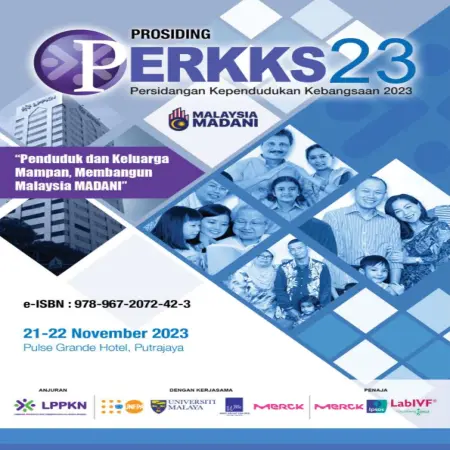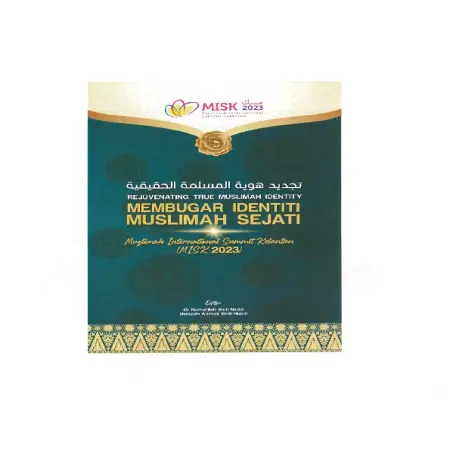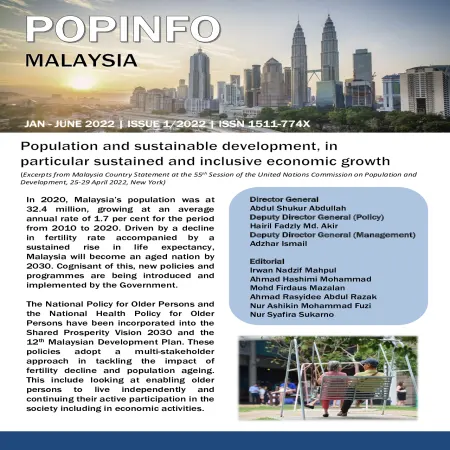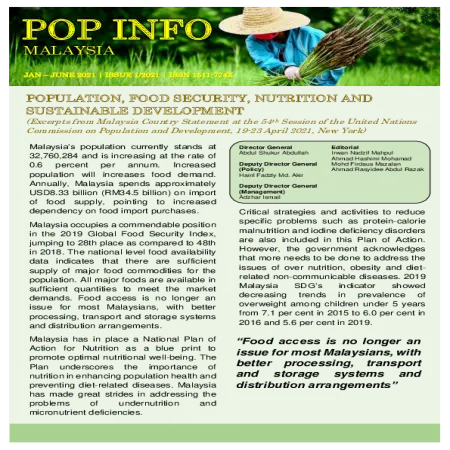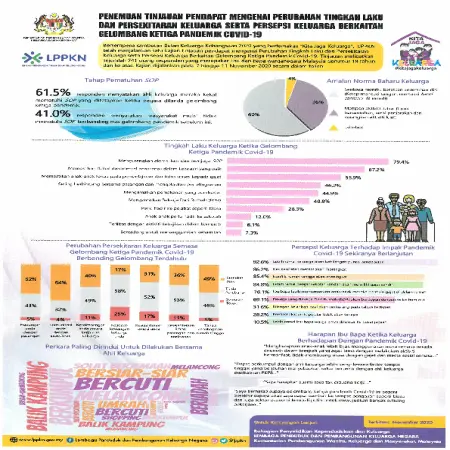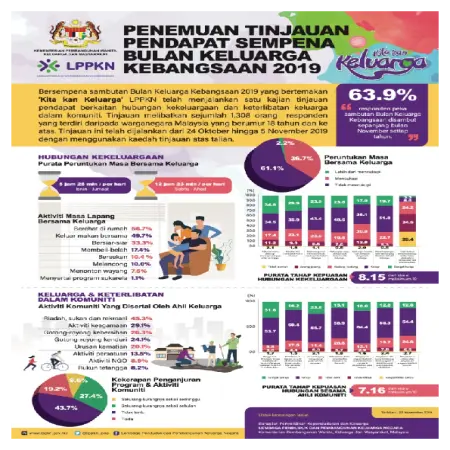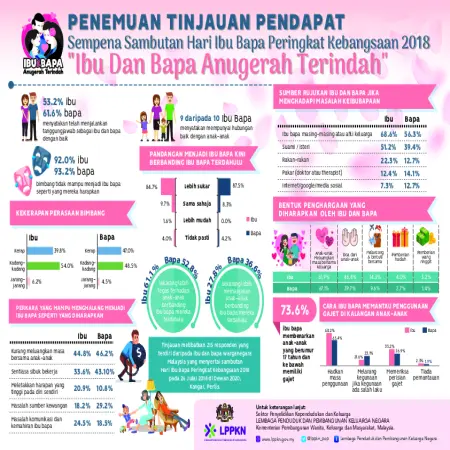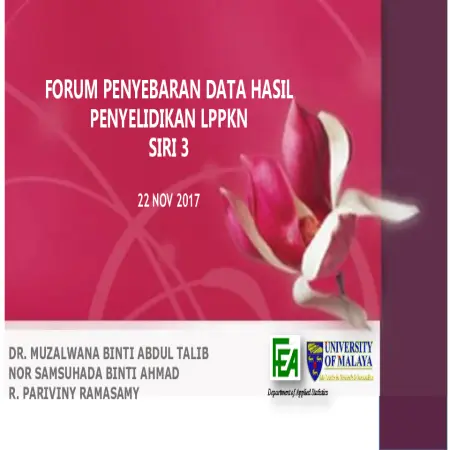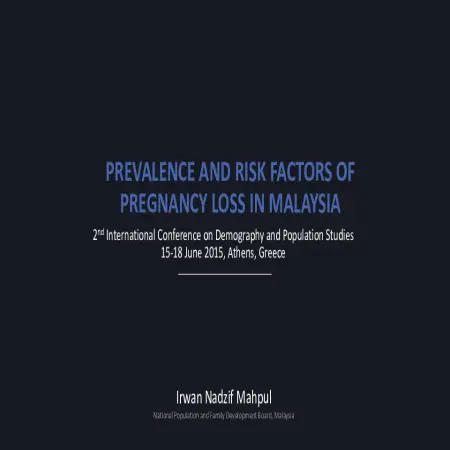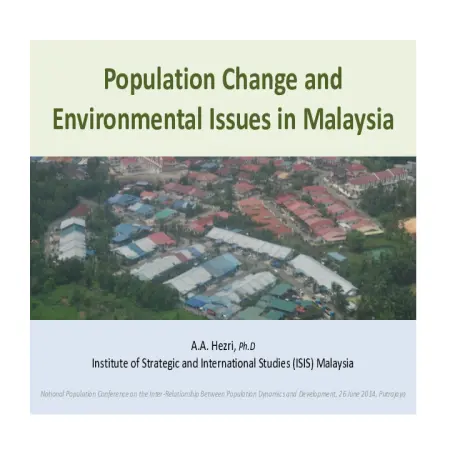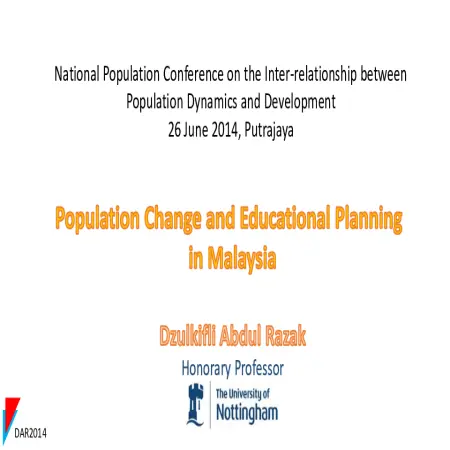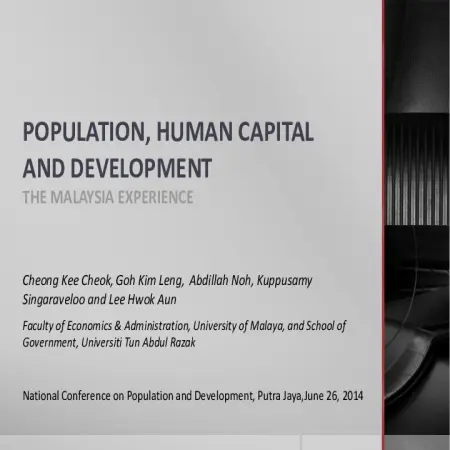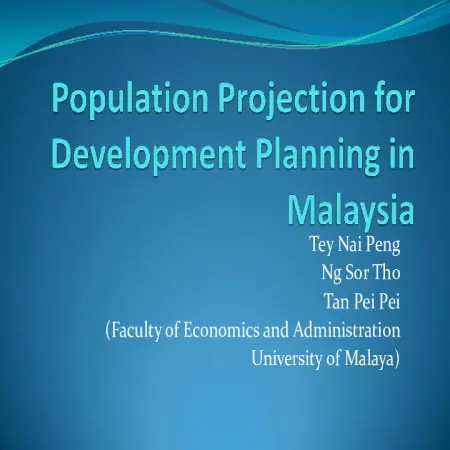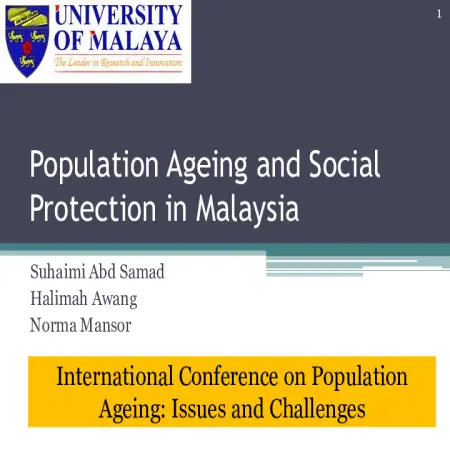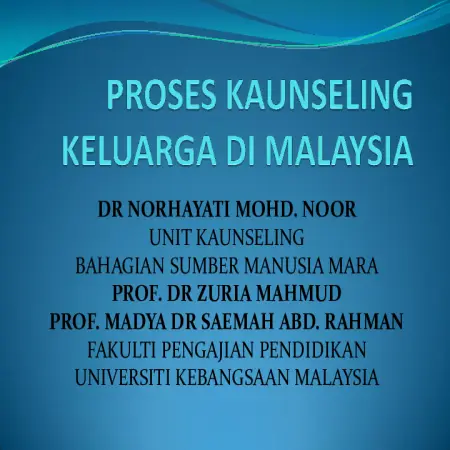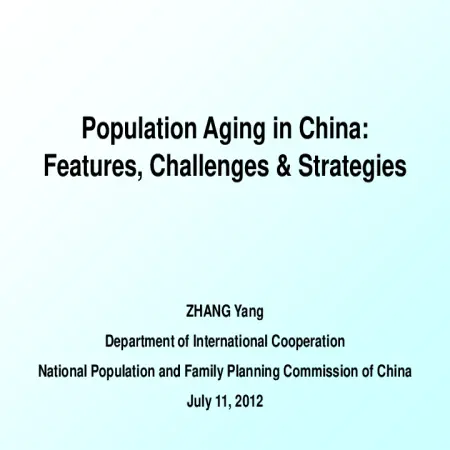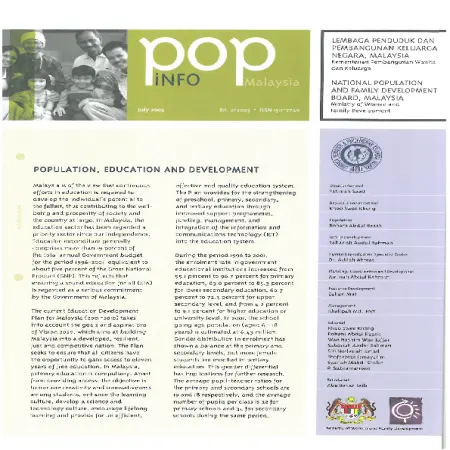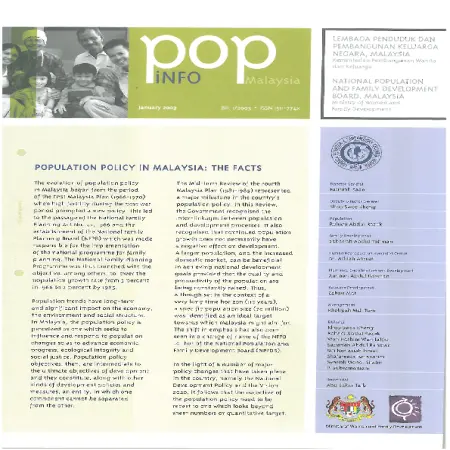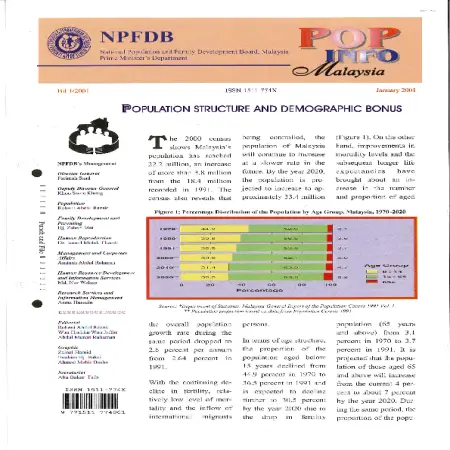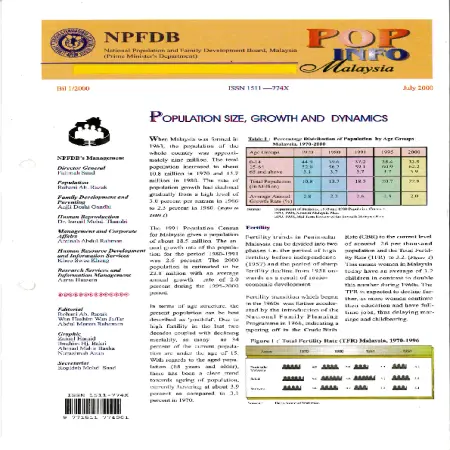Browse by Subject
Results for Search : "303 Social processes"
2023 (2)
|
|
Perceived social support, mental health and quality of life among recipients of old age financial assistence
Item Type: Book Section
Editor:
Year: 00/12/2023
Abstract: The present study examines multidimensional perceived social support, mental health and quality of life (QOL) in older adults aged 60 years and older who receive the financial assistance provided by the Department of Social Welfare. A cross-sectional study approach was conducted among 487 older adults living in Selangor, Malaysia, who are the recipients of old age financial assistance known as Bantuan Warga Emas (BWE).
|
|
|
|
|
|
Peranan, tahap kesejahteraan, cabaran dan persediaan golongan wanita dalam menghadapi situasi pandemik covid-19 di Malaysia
Item Type: Book Section
Editor:
Year: 00/06/2023
Abstract: Towards post COVID-19, most of the daily routines of Malaysian women's life have changed. The change in routine includes the management of household affairs, work routine to work from home (work from home) and socializing routine. As a result, society, especially women, is seen as increasingly depressed due to the loss of sources of income, limited involvement in outdoor activities and problems in balancing work and family time. Aware of this situation, the National Population and Family Development Board Malaysia (NPFDB) has taken the initiative to conduct a series of public opinion surveys throughout 2020 and 2021. This study aims to explore the role, level of well-being, challenges and preparations of women in facing the pandemic situation COVID-19 in Malaysia. This study is an online survey study. The findings of this study are a reflection of the current situation of society and family institutions in Malaysia in facing several new waves during the COVID-19 pandemic. The findings of the survey show that women are more affected than men, but the level of well-being of women in Malaysia is seen to be still at a satisfactory level. In addition, the results of the study also found that women stated that they are faced with various issues and challenges especially for those who are married. Issues of family management, children's education at home and more flexible working hours should be highlighted for consideration by the Government. It is hoped that various initiatives and development plans related to women can be planned in addition to strengthening existing policies towards achieving the aspiration of "Building a CIVIL Malaysia". In general, the chapters in this book contribute to knowledge related to the current situation of women in facing the new normal life. While in particular, the chapters in this book contribute to knowledge related to the role, well-being, challenges and preparation of Malaysian women in facing the situation of the COVID-19 pandemic.
|
|
|
|
2022 (1)
|
|
Population and sustainable development, in particular sustained and inclusive economic growth
Item Type: Newsletter
Editor:
Year: 00/05/2022
Abstract: In 2020, Malaysia's population was at 32.4 million, growing at an average annual rate of 1.7 per cent for the period from 2010 to 2020. Driven by a decline in fertility rate accompanied by a sustained rise in life expectancy. Malaysia will become an aged nation by 2030.
|
|
|
|
2021 (1)
|
|
Population, food security, nutrition and sustainable development
Item Type: Newsletter
Editor:
Year: 00/00/2021
Abstract: Malaysia occupies a commendable position in the 2019 Global Food Security Index, jumping to 28th place as compared to 48th in 2018. The national level food availability data indicates that there are sufficient supply of major food commodities for the population. All major foods are available in sufficient quantities to meet the market demands. Food access is no longer an issue for most Malaysians, with better processing, transport and storage systems and distribution arrangements.
|
|
|
|
2020 (1)
|
|
Penemuan tinjauan pendapat mengenai perubahan tingkah laku dan persekitaran keluarga serta persepsi keluarga berkaitan gelombang ketiga pandemik Covid-19
Item Type: Infographic
Editor:
Year: 00/11/2020
Abstract: This infographic is about findings from public opinion poll that was conducted in conjunction with the 2020 National Family Month celebration themed "Kita Jaga Keluarga". The survey involved a total of 741 respondents who are parents of Malaysian citizens aged 18 years and above.
|
|
|
|
2019 (1)
2018 (1)
|
|
Penemuan tinjauan pendapat sempena sambutan hari ibu bapa peringkat kebangsaan 2018 "Ibu dan bapa anugerah terindah"
Item Type: Infographic
Editor:
Year: 00/00/2018
Abstract: This infographic is about the findings of the opinion poll in conjunction with the 2018 national Parents' days celebration with the theme "Ibu dan bapa anugerah terindah". 9 out of 10 parents state having a good relationship with children.
|
|
|
|
2017 (1)
|
|
Perbandingan kesejahteraan psikologi wanita di kalangan keluarga komuter dan keluarga tradisional di Malaysia: satu kajian awal
Item Type: Conference or Workshop Item
Editor:
Year: 00/00/2017
Abstract: The objective of this study was to make a comparison of the psychological well -being of women among commuter families and not from commuter families based on the factors that contribute to the psychological well -being of each category. The study was also to compare female fertility levels among commuter families and non -commuter families.
|
|
|
|
2015 (1)
|
|
Prevalence and risk factors of pregnancy loss in Malaysia
Item Type: Conference or Workshop Item
Editor:
Year: 00/00/2015
Abstract: The objective of this paper is to study the prevalence and risk factors of pregnancy loss in Malaysia. The risk of pregnancy loss is highest among Indian, followed by Malay and Chinese. The risk of pregnancy loss increases with level of education, age at 1st marriage and number of previous non-live births.
|
|
|
|
2014 (5)
|
|
Population and Family Policies in Malaysia
Item Type: Conference or Workshop Item
Editor:
Year: 26/06/2014
Abstract: One of the objectives of development in the country is to improve the quality of life for all the people. Therefore, populations are at the core of development. Understanding demographic trends provides policy-makers with the tools to design interventions that lead to development especially in social sectors (family, health, education and labour) and providing infrastructure services. Knowledge on the population is crucial for planning resource allocation and designing appropriate policies. This paper intends to provide a review of population trends and population-related policies in Malaysia.It considers descriptions of Malaysia demographic changes, and then turns to the 1966 family planning programmes, the 70 million Population Policy in 1984 and to the recent Family Policy. This paper also attempts to provide insight into these policies by their evolutions, patterns and approaches, characteristics and provide recommendations for the future challenges.
|
|
|
|
|
|
Population change and environmental issues in Malaysia
Item Type: Conference or Workshop Item
Editor:
Year: 00/00/2014
Abstract: Human influence on ecological footprint was negligible for thousands of years until population numbers started to increase dramatically. For instance, prior to the Industrial Revolution, the forests of many European countries were cleared mainly for subsistence, with little effect on ecosystem functioning. By the late 17th century, the fall in mortality and higher birth rates had catalysed the spread of settled agriculture with a rapid decline in Europe's forest cover. The population growth also triggered migration within Europe. When some natural resources fell into short supply, European powers started to search other parts of the New World. These explorations later on resulted in migration not just for subsistence, but also for settlements, agriculture and industry. This presentation will explains about population change and environmental issues in Malaysia.
|
|
|
|
|
|
Population change and educational planning in Malaysia
Item Type: Conference or Workshop Item
Editor:
Year: 00/00/2014
Abstract: Strengthen national capacity to plan and manage changing. Educational systems in response to the needs of society. Planning and preparing the education sector through long-term involvement and focused [sustainable] interventions. Improve the quality of the educational experience itself. Realise global agenda like ESD, EFA, MDGs and post-2015 Development (Education) Agenda. This presentation is describes about population change and educational planning in Malaysia.
|
|
|
|
|
|
Population, human capital and development: the Malaysia experience
Item Type: Conference or Workshop Item
Editor:
Year: 00/00/2014
Abstract: Like other countries in East and Southeast Asia, Malaysia has undergone a rapid demographic transition to low fertility. This has meant a growing share of the economically active population that will eventually peak as ageing becomes more pronounced. The potential increase in the labor force has been undermined by both rising enrollment in upper secondary and tertiary education, as well as by many females remaining outside the labor force. Together with high economic growth, this has created a shortage of labor. Immigrant labor, both legal and illegal, has stepped in to fill the gap but entrenched a low labor cost model. Breaking out of this requires strengthening the country’s human capital base. While generous government expenditure and liberalization of the education sector has resulted in significant gains in numbers enrolled, several factors have had a negative effect on education quality. Unless reversed, this deterioration has long-term implications for the country’s development.
|
|
|
|
|
|
Population projection for development planning in Malaysia
Item Type: Conference or Workshop Item
Editor:
Year: 00/00/2014
Abstract: The purpose of this paper is to identify the data needs, and provide projected population figures, disaggregated by age and other characteristics, which may be used by planners from the government and the industry for planning purposes. Specifically, the paper seeks to illustrate the requirements for education, health and economic sectors in terms of human resources, infrastructure and expenditure to meet the needs of the population.
|
|
|
|
2012 (3)
|
|
Population ageing and social protection in Malaysia
Item Type: Conference or Workshop Item
Editor:
Year: 00/00/2012
Abstract: With rapid increase in number of older persons, Malaysia is faced with multitude issues of graying population resulting from declining birth rate and rising life expectancy. In 2010 4.7% of the population was above 65 years old and the life expectancy was 71.7 years for males and 75 years for females. The New Economic Model for Malaysia (NEM) 2010 defines inclusiveness, high income and sustainability, as the three prong objective towards a developed nation in 2020. The underlying principle of the inclusiveness objective is to enable every Malaysian to have access to opportunities in order to contribute to the economy and to ensure that essential needs of the people are met. At least ten policy measures were recommended to improve the well being of the bottom 40% of the population, which has been identified as underserved. The question is, to what extent is the existing social safety net policy adequate to support every Malaysian to sustain a decent living? What are the issues and gaps with social safety net for older people? This paper attempts to answer these questions and to examine other related issues. It is divided into three parts: the first parts is an assessment of the existing social safety net in Malaysia; the second part looks at some case studies of NGO’s working with the older people and the final part offers some policy recommendations as a way forward.
|
|
|
|
|
|
Proses kaunseling keluarga di Malaysia
Item Type: Conference or Workshop Item
Editor:
Year: 00/00/2012
Abstract: Family counseling is one of the interventions in family services for built a healthy family in Malaysia. This is a qualitative case study of a variety of 'settings' aims to explore the phenomenon of family counseling process conducted by practitioners in Malaysia with an in-depth interview technique, observation and document analysis. Study participants in the study were 12 family counseling practitioners from three counseling service centers. This study has five research questions namely to (i) identify the type of cases handled, number of cases and causes of problems in the family counseling process (ii) identify the initial relationship in the family counseling process (iii) explore the family counseling process (iv) identify approaches and skills used in family counseling and (v) explore the impetus and challenges of the family counseling process among family counseling practitioners in various settings in Malaysia. Cross -case analysis method based on interviews, observations and document analysis on family counseling practitioners was implemented using Nvivo 8 software. In this study, 190 themes and sub -themes were produced from 12 study participants. The results show that there are some similarities and differences between the family counseling process in Malaysia and the process framework in Western countries. These similarities and differences occur at all levels of the counseling process, skills, use of techniques, application of theory, and challenges in practice. The results of the study also show that the family counseling process among practitioners in Malaysia is tied to the education and training received by the practitioner, the context of religion, culture, values and SES of the family and community in Malaysia. Therefore, this study contributes to the provision of family counseling process that is very necessary in strengthening the family institution and can be an intervention in building a generation of excellent Malaysian society.
|
|
|
|
|
|
Population aging in China: features, challenges & strategies
Item Type: Conference or Workshop Item
Editor:
Year: 00/00/2012
Abstract: Global response to population aging is confronted by a series of severe challenges, for example retirement and medical/caring costs adds to fiscal burdens, population aging withers the labor force, development and aging problems intermingle as growth of the aged population mostly takes place in developing countries and poverty of the aged remains an acute problem. All these issues may only be addressed when national governments all over the world take the needs of the aged into full consideration in developing their social policies, establish specific strategies for responding to population aging and incorporate such strategies into long-term national development frameworks. Population aging also reflects the progress and achievement that the human society has made in extending life expectancy, improving mother and child health and helping women realize family planning. Seniors are more than just beneficiaries of social welfare. As producers, consumers, spreaders of traditional cultures, care-takers of children in their families and communities, seniors also play positive irreplaceable roles. A shared goal for us all therefore is to regard aging as an achievement, respond to age-related issues with a positive, optimistic and rational altitude, view skills, experiences and resources of the elderly as capital of the social development course, incorporate aging into our development agendas, promote positive aging and thereby construct a sharing society regardless of age.
|
|
|
|
2003 (2)
|
|
Population, education and development
Item Type: Newsletter
Editor:
Year: 00/07/2003
Abstract: Malaysia is of the view that continuous efforts in education is required to develop the individual's potential to the fullest, thus contributing to the well-being and prosperity of society and the country at large. In Malaysia, the education sector has been regarded a priority sector since our independence.
|
|
|
|
|
|
Population policy in Malaysia: the facts
Item Type: Newsletter
Editor:
Year: 00/01/2003
Abstract: The main aim of the future population policy is to sustain population growth that is in balance with resources and sustainable development. This is in accordance with Government's efforts to create Malaysia as an industrialised nation but at the same time maintaining quality population founded on healthy, resilient and stable family system.
|
|
|
|
2001 (1)
|
|
Population structure and demographic bonus
Item Type: Newsletter
Editor:
Year: 00/01/2001
Abstract: Malaysia, like several other countries in the region, will benefit from the demographic change whereby the proportion of working age group has been increasing from 52 percent in 1970 to 58 percent in 1995. Currently, this group constitutes about 60 % and assuming fertility continues to decline as projected, this proportion will continue to increase, and will reach almost 64 % by the year 2020.
|
|
|
|
2000 (1)
|
|
Population size, growth and dynamics
Item Type: Newsletter
Editor:
Year: 00/07/2000
Abstract: When Malaysia was formed in 1963, the population of the whole country was approximately 9 million. The total population increased to about 10.8 million in 1970 and 13.7 million in 1980. The rate of population growth had declined gradually from a high level of 3.0 per cent per annum in 1966 to 2.3 per cent in 1980. Besides, with the continuing decline in fertility, relatively low level of mortality and inflow of international migrants being controlled, the population of Malaysia will continue to increase at a slower rate in the future.
|
|
|
|





